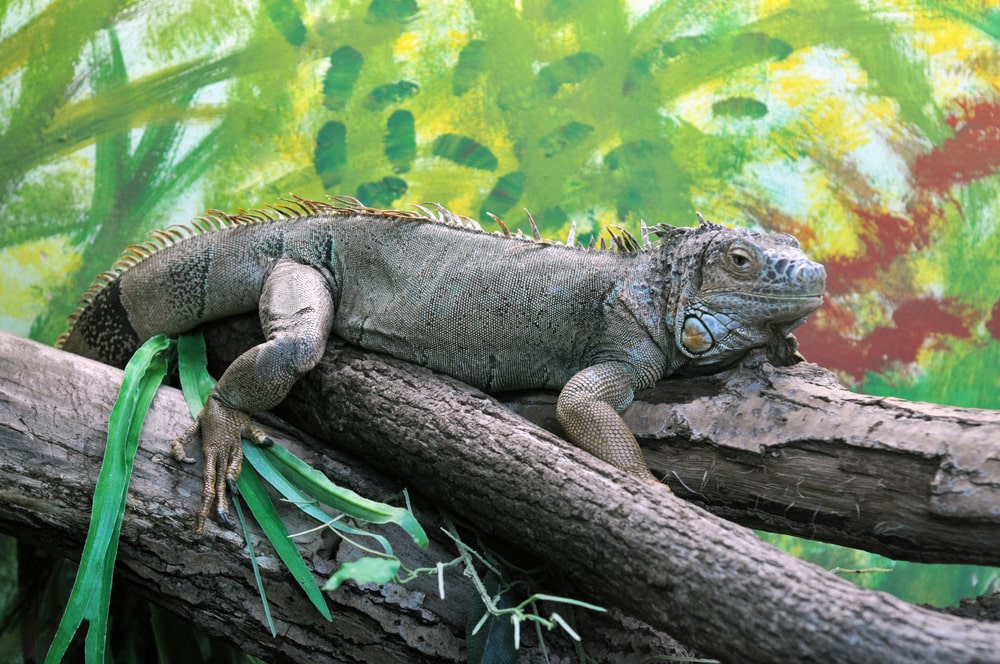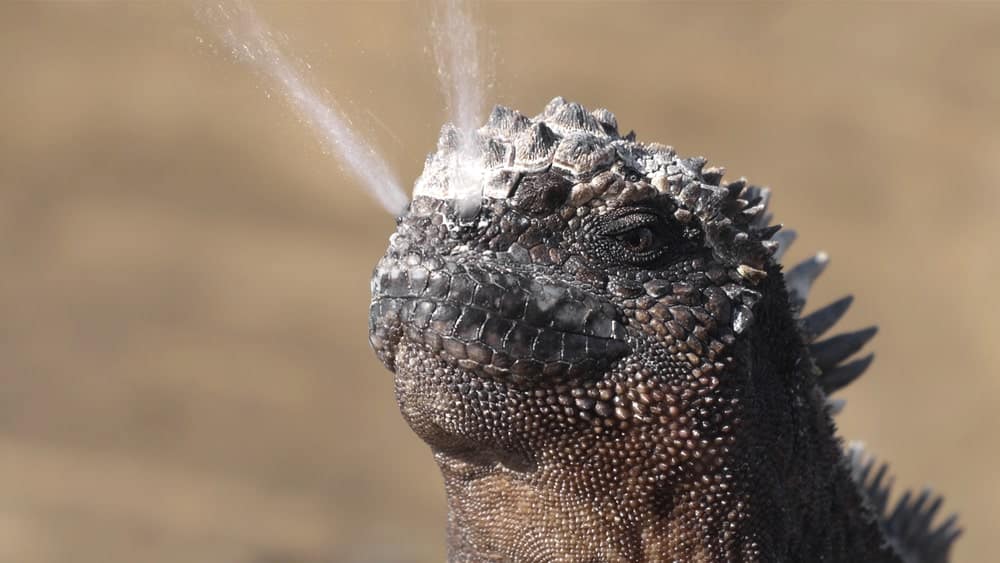Iguanas are fascinating creatures that are native to Central and South America. However, they have become a nuisance in many parts of the world where they have been introduced. Iguanas can cause damage to property, transmit diseases, and compete with native wildlife for resources. As such, it is important to have effective iguana control methods in place to manage their populations.
This article provides an overview of iguana control methods, including how to identify the signs of an infestation, understanding iguana behavior and biology, preventive measures to deter iguanas, safe and humane removal techniques, and professional iguana control services. By understanding these methods, homeowners and property managers can take the necessary steps to prevent and control iguana populations.
Whether you are dealing with a small iguana problem or a large infestation, this article will provide you with the knowledge and tools you need to maintain a pest-free environment. According to applicable laws you should connect with experts at Iguana Control, you can receive professional advice and services to help you manage iguana populations in a safe and effective manner.
Recognizing Iguana Infestation
Identifying the Signs of an Iguana Presence
Iguanas are known to be invasive pests that can cause damage to your property, garden, and plants. It is important to recognize the signs of an iguana infestation so that you can take the necessary steps to control and prevent them from causing further damage. Here are some signs to look out for:
- Iguana droppings: Iguana droppings are usually found near trees, plants, and other areas where they feed. They are usually green and can be easily identified.
- Bite marks: Iguanas have sharp teeth that can cause damage to plants and trees. If you notice bite marks on your plants or trees, it could be a sign of an iguana infestation.
- Scratches: Iguanas have sharp claws that they use to climb trees and other surfaces. If you notice scratches on your walls, fences, or trees, it could be a sign of an iguana infestation.
- Holes: Iguanas dig holes in the ground to lay their eggs. If you notice small holes in your garden or yard, it could be a sign of an iguana infestation.
- Iguana sightings: If you see iguanas around your property, it could be a sign of an infestation. Iguanas are usually active during the day and can be seen basking in the sun or climbing trees.
If you notice any of these signs, it is important to take action to control the iguana infestation. Effective iguana control methods include installing barriers, removing food sources, and using humane removal techniques.
Understanding Iguanas
Iguana Behavior
Iguanas are known for their docile nature, but they can become aggressive when they feel threatened. They are primarily herbivores, feeding on leaves, fruits, and flowers. Iguanas are also known to be territorial and will defend their territory against other iguanas.
When threatened, iguanas will puff up their bodies, hiss, and lash out with their tails. They can also bite and scratch, which can be painful and cause infections. Iguanas are also known to carry salmonella, which can be transmitted to humans through contact with their feces.
Iguana Biology
Iguanas are cold-blooded reptiles that can grow up to six feet in length. They have long tails, sharp claws, and strong jaws that they use to bite and tear food. Iguanas have excellent eyesight and can see colors, which helps them to identify ripe fruits and flowers.
Iguanas are also excellent swimmers and can hold their breath for up to 30 minutes underwater. They are also capable of regenerating their tails if they lose them due to injury or predator attacks.
Iguanas are most active during the day and prefer to bask in the sun to regulate their body temperature. They are also known to hibernate during the winter months in colder regions.
Understanding iguana behavior and biology is essential when developing a control plan. By knowing their habits and biology, one can effectively deter them from entering a property and prevent potential damages.
Prevention Strategies
Habitat Modification
One of the most effective ways to prevent iguanas from invading your property is to modify their habitat. Iguanas are attracted to areas with plenty of food, water, and shelter. Therefore, it is important to eliminate these resources to discourage them from coming to your property.
To modify their habitat, you can start by removing any plants that iguanas find attractive. This includes fruit trees, hibiscus, and other flowering plants. You can also install barriers around your property to prevent iguanas from entering. These barriers can be in the form of fences, walls, or even netting.

Repellents and Deterrents
Another way to prevent iguanas from invading your property is to use repellents and deterrents. There are many different types of repellents and deterrents available, including sprays, granules, and electronic devices.One of the most popular repellents is a spray made from natural ingredients such as garlic, peppermint, and rosemary.
It is important to note that while repellents and deterrents can be effective, they are not the most effective methods. Additionally, it is important to use safe and humane iguana control methods to protect both the iguanas and your property. Tips for iguana removal you can find more advice for protecting your home from iguanas.
Removal Methods
Humane Trapping
One of the most effective and humane ways to remove iguanas from a property is by trapping them. Live traps can be set up in areas where iguanas are known to frequent, such as around trees or near water sources. These traps are typically baited with fruits or vegetables that iguanas are known to eat. Once the iguana enters the trap, it can be safely transported to a new location and released.
It is important to note that trapping should only be done by a licensed professional, as iguanas can become stressed and injured if not handled properly. Additionally, it is illegal to release iguanas into the wild in some areas, so it is important to check local regulations before attempting to remove iguanas on your own.
Exclusion Techniques
Exclusion techniques involve making changes to a property to prevent iguanas from entering or nesting. This can include sealing off entry points to buildings, installing fencing or barriers around the perimeter of a property, and removing potential nesting sites such as piles of debris or overgrown vegetation.
Exclusion techniques can be effective in preventing iguanas from becoming a problem in the first place, but they may not be effective in removing iguanas that have already established themselves on a property. In these cases, a combination of exclusion techniques and humane trapping may be necessary to fully remove the iguanas.
Overall, it is important to work with a licensed professional who has experience in iguana removal techniques to ensure that the removal process is safe, effective, and humane.
Professional Services
Iguana infestations can be difficult to manage, and sometimes it is best to seek the help of a professional iguana control service. Professional experts have the knowledge and experience to effectively remove iguanas and prevent future infestations
Choosing a Service Provider
When selecting a professional iguana control service, it is important to choose a reputable and reliable company. Here are some factors to consider:
- Experience: Look for a company with at least 5 years of experience in iguana control. Experienced companies are more likely to have the knowledge and skills necessary to effectively remove iguanas.
- Iguana Specialists: Look for a company that specializes in iguanas only. General pest control companies who also treat issues related to raccoons, possums, and snakes might not have the expertise necessary for approaching iguanas properly.
- Licenses and Certifications: Make sure the company is licensed and certified to perform iguana control services in your area. This ensures that they are following all necessary regulations and guidelines.
- Methods and Techniques: Ask the company about their methods and techniques for iguana control. Ensure that they use safe and humane methods that comply with local laws and regulations.
- Customer Reviews: Check online reviews and ask for references from the company. This can give you an idea of their past performance and customer satisfaction.
- Cost: Compare prices and services from different companies to find the best value for your money.
By considering these factors and the price of iguana removal, you should choose only a professional iguana control service that will effectively remove iguanas from your property and prevent future infestations.
Ongoing Maintenance
Monitoring and Evaluation
Once an iguana infestation has been successfully controlled, it is important to implement ongoing maintenance to prevent future infestations. This involves monitoring the area for signs of iguanas and evaluating the effectiveness of the prevention and control measures that have been put in place.
Regular inspections of the property should be conducted to check for any signs of iguana activity, such as droppings, burrows, and damage to vegetation. Any new signs of activity should be addressed immediately to prevent further infestation.
Evaluation of the prevention and control measures should also be conducted regularly to ensure their effectiveness. If any measures are found to be ineffective, they should be adjusted or replaced with more effective methods.
In addition, it is important to inform people around you on how to identify and report iguana activity to ensure prompt action can be taken.
By implementing ongoing maintenance and monitoring, property owners can ensure a pest-free environment and prevent future iguana infestations.


